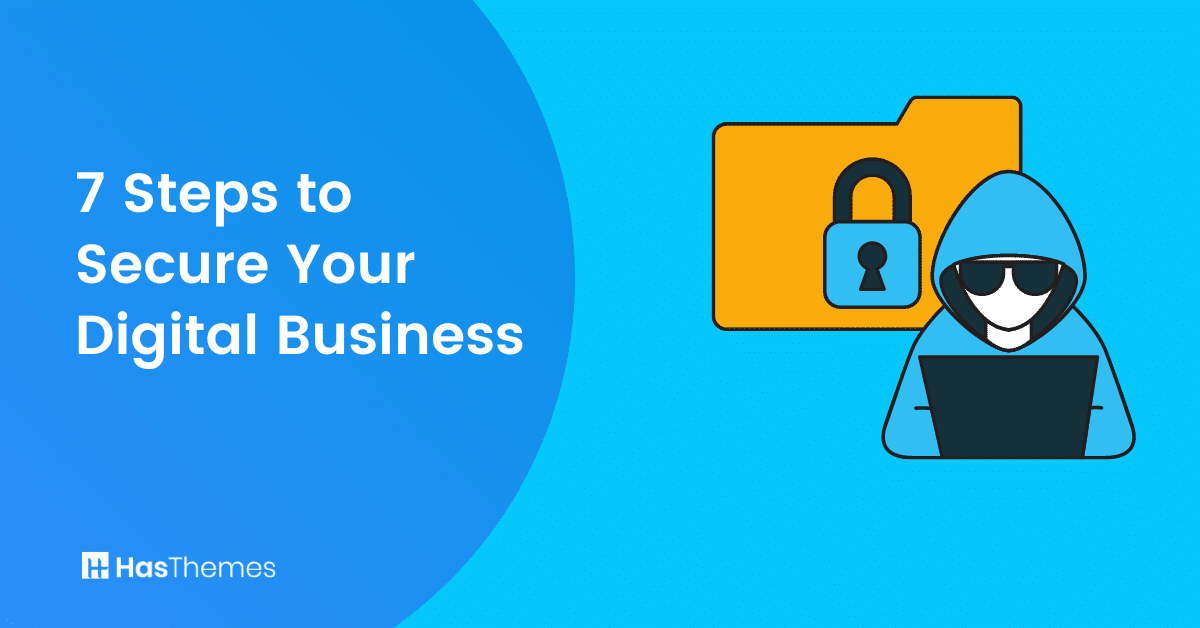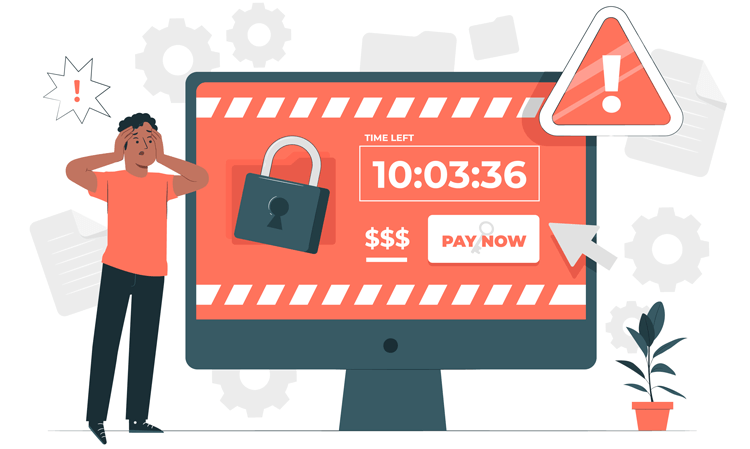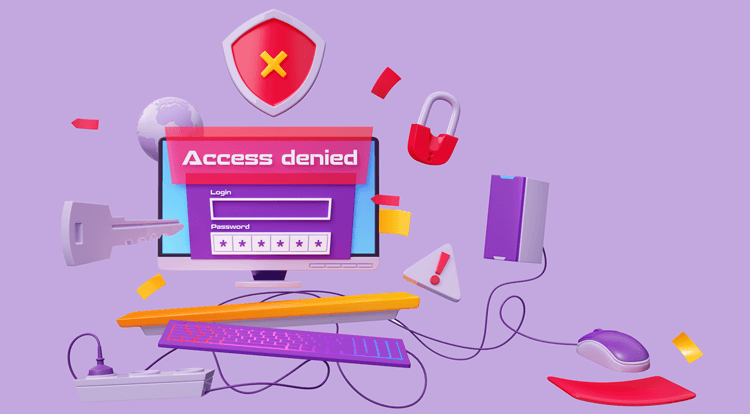
Digital Security: Is Your Digital Business Secure Enough to Fight Hackers?
It’s no secret that most companies rely on technology to run their business. However, being so highly dependent on technology comes with a set of risks including cyberattacks and breaches that can lead to devastating consequences for a business. Therefore, investing money and time into cybersecurity, in addition to taking all the necessary precautions to stay safe and away from hackers is more important than ever.
In this article will discuss the importance of digital security for businesses and provide some tips for protecting your company from cyber threats.
- Why is Digital Security Important?
- Understanding the Types of Cyber Threats
- Tips for Protecting Your Business from Cyber Threats
- Implementing Strong Password Policies
- Using a VPN
- Using Multi-Factor Authentication
- Keeping Software Up-to-Date
- Backing Up Data Regularly
- Educating Employees
- Limiting Access
- Conclusion
Why is Digital Security Important?
As mentioned above, modern companies rely heavily on digital technology, whether for storing their important data, conducting transactions or communicating with customers and employees. However, this dependence on technology also makes businesses vulnerable to cyber threats, including hacking, data breaches, and other forms of cybercrime.

A cyberattack can have serious, often permanent consequences for a business. It can damage the reputation, scare away loyal customers, or even cause legal repercussions. For example, if a business experiences a data breach and customer information is compromised, the business may be subject to lawsuits, regulatory fines, and other legal consequences, which may put the company’s entire future into question.
Therefore, it is crucial for businesses to take proactive measures to protect their digital assets and prevent cyberattacks, instead of just hoping that they’ll get lucky and avoid all cyber threats.
👉 Learn Top 7 Strategies to Prevent eCommerce Fraud: Protect Your Website Better
Understanding the Types of Cyber Threats
To effectively protect your digital assets from cyber criminals, it’s crucial that you have at least a basic understanding of the different types of cyber threats that businesses face these days.
Some of the most common types of cyber threats include:
Phishing Attacks:
Phishing is a type of social engineering attack where cybercriminals send emails or messages that appear to be from a legitimate source in order to trick individuals into providing sensitive information such as passwords or credit card numbers.
Malware:
Malware is software designed to infect a computer or network and cause damage, steal data, or allow unauthorized access.

Ransomware:
Ransomware encrypts a victim’s files and demands payment for the decryption key.

DDoS Attacks:
Distributed Denial of Service (DDoS) attacks involve overwhelming a website or network with traffic to cause it to crash or become inaccessible.

Man-in-the-Middle Attacks:
A man-in-the-middle attack involves intercepting communication between two parties to steal data or redirect traffic.
Luckily, businesses can protect themselves and their digital assets by understanding the different types of cyber threats and investing in appropriate protection systems.
ShopLentor- WooCommerce Builder for Elementor & Gutenberg
A versatile page builder to build modern and excellent online stores with more than 100k Active Installations.
Tips for Protecting Your Business from Cyber Threats
There are several steps that businesses can take to protect their digital assets from cyber threats. You can use them individually or together for increased security. Some of the most effective safeguards against cyber threats include:
Implementing Strong Password Policies
The majority of businesses and their employees are guilty of neglecting their passwords, reusing old and easy-to-guess passwords for even the most important accounts. This is extremely irresponsible since passwords are often the first defense against cyberattacks, and businesses need to ensure that their employees are using strong, unique passwords for each account. This can be achieved by implementing strong password policies that require employees to use and change complex passwords regularly.
Using a VPN
What can someone do with your IP? Well, to understand that first, let’s clear up what an IP address is. Your IP address is a unique identifier assigned to your device when you connect to the internet. While an IP address alone does not provide access to your personal information or files, it can be used in conjunction with other information to track your online activity, even if you are browsing the web in private mode.
Therefore, it is important to take steps to protect and conceal your IP address to reduce the risks of someone using it against you. The easiest and most effective way to do that is to start using a virtual private network (VPN) to mask your IP address and encrypt your online activity.
Using Multi-Factor Authentication
Multi-factor authentication (MFA) is a security measure requiring users to provide additional verification beyond a password to access a system or application. This can include biometric verification or a one-time code sent to a mobile device, and it will greatly reduce the chances of unauthorized access to your account and data.
Keeping Software Up-to-Date
One of the most neglected aspects of digital security is the routine updates for your software. While the update reminders can be annoying, software vulnerabilities are a common entry point for cyberattacks, and businesses need to keep all software and applications up-to-date to ensure that they’re getting the most up-to-date security patches.
Backing Up Data Regularly
Regularly backing up data can help mitigate the damage caused by a cyberattack or data breach. By having a backup of critical data, businesses can quickly restore systems and minimize the impact of an attack.
Educating Employees
Employees are often the weakest link in digital security. That’s why you must educate them on cybersecurity and give them the tools to practice digital safety on their own. This can include training on how to identify phishing emails, how to create strong passwords, and how to recognize other types of cyber threats.
Limiting Access
Businesses should also limit access to sensitive data and systems to only those employees who require it to perform their job functions. Needless to say, these employees should also undergo cyber security training. This can help prevent unauthorized access and limit the damage caused by a potential breach.
Support Genix
WordPress Support Ticket Plugin
A WordPress plugin adds the features of a comprehensive support ticket system to your WordPress site. Users may now create tickets and get help right from your WordPress site.
Conclusion
Technology will continue to play an increasingly larger role in the process of running a business. This is why business owners must take proactive measures to protect their digital assets from cyber threats. This requires a comprehensive approach to digital security, including technical solutions and employee education. By understanding the different types of cyber threats and implementing best practices for digital security, businesses can help minimize the risk of a cyberattack or data breach.



